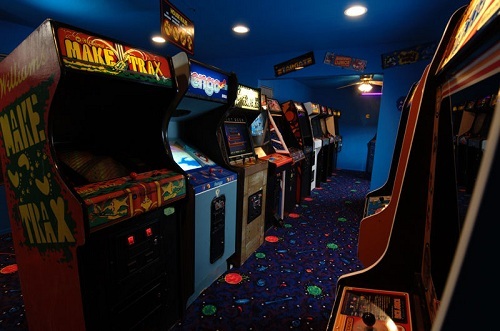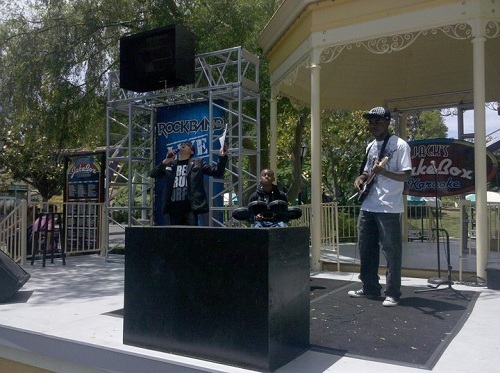This post has not been edited by the GamesBeat staff. Opinions by GamesBeat community writers do not necessarily reflect those of the staff.

Hello? Anybody home?
As you draw nearer to the high score, tension begins to permeate the bystanders. Silence has consumed every individual until that fateful moment arrives: “New High Score” flashes across the screen!
The crowd erupts with high-fives all around. Yep, the arcade was the place to be, especially for someone with your gaming skills.
In the past, you would proudly march into your local arcade. You were the talk of the neighborhood, and crowds would gather around as you played fervently, summoning up all of your concentration to beat the best score.
Why not try your luck today? Even though you haven’t visited one for years, your local arcade is still up and running. A quick look wouldn’t hurt….
Where is everyone? Why are half of the machines turned off? Is this place even open?
This is a common experience that gamers might encounter today. I have begun to wonder if a larger phenomenon is taking place: Has playing video games in public lost its luster?
Ironically, as games today become more “social,” we are in turn becoming less social. From trading items in Team Fortress 2 to Facebook mega-hit Farmville, social interaction between gamers is alive and healthy.
But these interactions occur in a virtual environment, not a physical (or “real-life,” if you will) situation. I’m not saying that gamers are locked up in their rooms all day, every day, with their only contact to the outside world being through the Internet. But looking at arcades today is an obvious indicator of the downfall of real-life interaction between gamers — excluding conventions such as E3. What might be the reasons for this demise?
Technology gap
This is the obvious point. Let’s face it: The latest technology at arcades, from what I’ve seen, is at best PlayStation 1-era. It’s difficult to attract customers when your latest and greatest is over a decade old. My local arcade has a “classics” section, but I find it a little misleading. Shouldn’t everything in the arcade be considered a “classic” at this point?
It’s understandable that people would rather stay at home and play their HD-equipped consoles. Which leads me to the next issue….
Home availability
Why play something at an arcade when you can play the same game or better from the comfort of your own home? Beyond the initial purchase price, you can play for an unlimited amount of time for free, whereas an arcade machine will continue to eat your quarters.

A rare sight of someone participating in Rock Band Live.
This issue appears to not only affect arcades. Last summer, a theme park I frequently visit, California’s Great America, launched a daily event called Rock Band Live: Jam Session. In this event, participants played Rock Band on stage in front of a large audience.
Interesting idea…but it flopped miserably. It rarely drew a crowd, and the number of participants were few. One time when I visited the park, the event’s hosts were begging people to participate. When no one did, they eventually played the game by themselves, hoping to attract attention. Again, why would you visit a theme park to play a game when you have it at home?
As comparison to a different type of media, a similar reason is responsible for dwindling theater attendance. As surround-sound systems and larger television screens become more widely available to the public, it just makes more sense to watch a movie at home and avoid the loud, popcorn-eating crowd at the theater.
These two issues may or may not be the reasons for diminished interest in arcades or for playing games in public in general. One thing is for certain, though: Arcades are dying, and unless there is a technological revolution in store for them, we have to be prepared for their burial.
